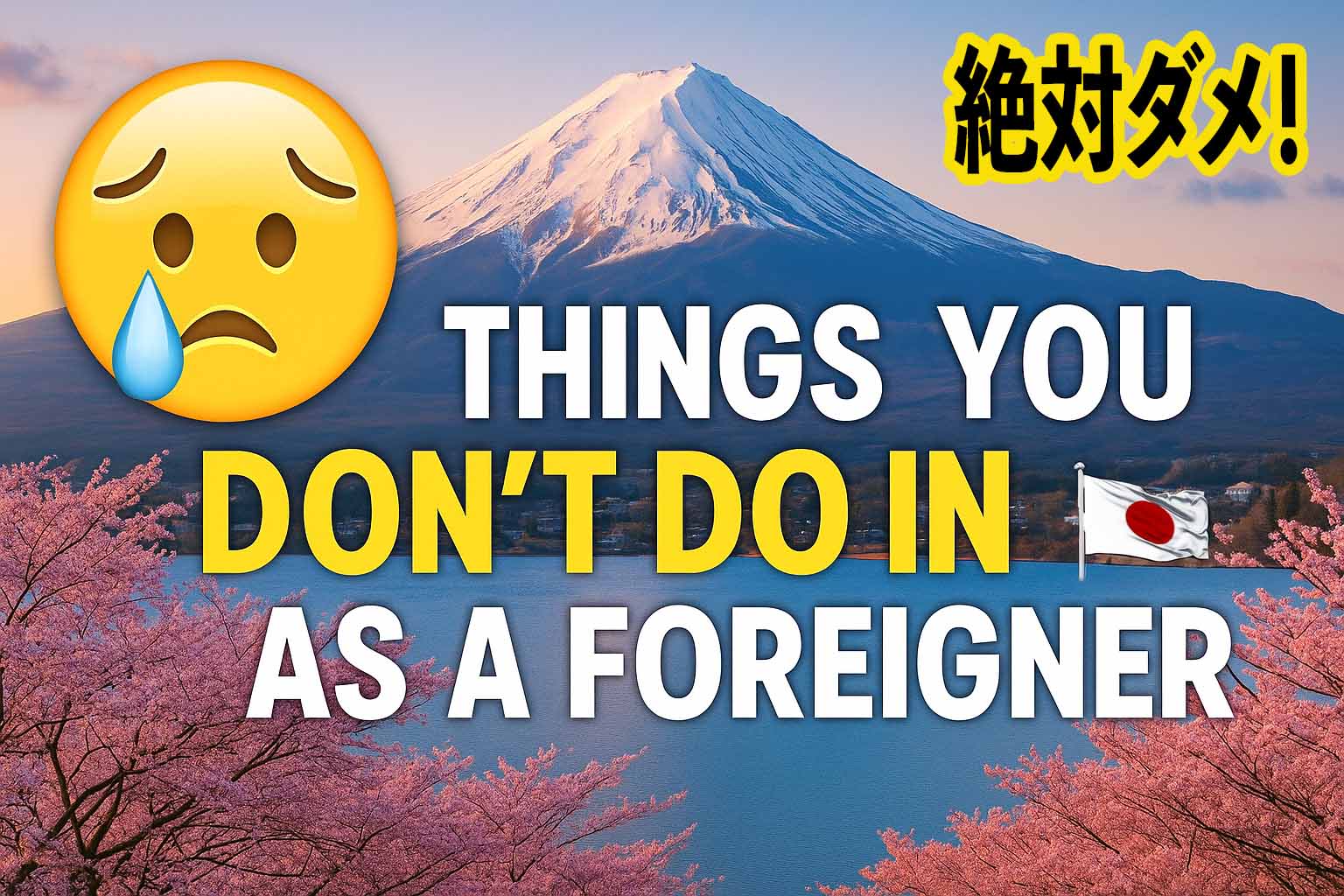Things You Don’t Do in Japan as a Foreigner – From Someone Living Here Since 2014
I’ve been living in Japan since 2014. Over the years, I’ve learned the language, adapted to the lifestyle, worked full-time, paid taxes, and above all—respected the culture that surrounds me. Japan has been a second home to me, and I’ve grown to love it deeply. But lately, I’ve felt the need to speak up.
More and more, I’ve noticed tourists and new residents making the same cultural mistakes—sometimes out of ignorance, but often from carelessness. The truth is, there are things you don’t do in Japan as a foreigner, and they’re not just about etiquette—they’re about mutual respect.
Table of Contents
This article isn’t meant to shame anyone. It’s a reality check from someone who genuinely cares about this country and wants visitors to enjoy Japan the right way—by respecting its unique values.
🚫 Don’t Speak Loudly in Public Spaces
One of the most common things foreigners overlook in Japan is how quietly public spaces are expected to be. Whether you’re on a train, in a waiting room, or walking through a park, the atmosphere is often calm and subdued.
Talking loudly—especially on the phone—stands out in a bad way. It may seem harmless, but to locals, it comes across as disruptive. Japan values harmony in social spaces. Matching that energy is a small way to show respect.
🚫 Don’t Ignore Local Customs
There are certain customs in Japan that may feel unfamiliar, but they’re non-negotiable parts of daily life. These include:
- Bowing instead of shaking hands
- Removing your shoes when entering someone’s home
- Lining up properly at stations and stores
These habits might seem small, but ignoring them signals disrespect. Learn and follow them—it makes all the difference.
🚫 Don’t Eat While Walking
In many places, grabbing food and eating while walking is normal. Not in Japan. Here, it’s seen as sloppy and inconsiderate. Instead, people sit down to enjoy their food, whether it’s in a park, a designated bench, or a restaurant.
If you grab something from a convenience store or food stall, pause and eat nearby, then move on. You’ll look more respectful and feel more connected to the culture.
🚫 Don’t Trash Public Spaces
Japan’s cleanliness is famous worldwide. But it’s not just because of strict laws—it’s because everyone contributes. There are few public trash bins, which means you often have to carry your trash with you until you find one.
Littering, leaving your coffee cup on a ledge, or even improperly sorting garbage at home can leave a bad impression. Cleanliness equals respect here.
🚫 Don’t Treat Japan Like a Theme Park
Respect shrines, temples, and traditional areas. Ask before taking photos of people. Don’t climb torii gates or act out just for clicks.
Things you don’t do in Japan as a foreigner include:
- Climbing sacred structures like torii gates
- Filming locals without permission
- Wearing cosplay in inappropriate places
This is a real culture, not a tourist prop. Enjoy it deeply, not superficially.
🚫 Don’t Complain About “Too Many Rules”
Yes, Japan has a lot of rules. But they exist for a reason: to keep society running smoothly for everyone. When you find yourself thinking, “Why do I have to follow this?”—pause and ask, “Why is this important to them?”
Complaining about the rules doesn’t help anyone. Adapting does.
🚫 Don’t Be Entitled
The most important thing you can do in Japan is to remember: you are a guest here. Show humility. Learn basic phrases like “Arigatou” (thank you) and “Sumimasen” (excuse me). These small efforts go a long way.
Locals are often incredibly kind and helpful—but don’t abuse that kindness. Entitlement ruins the experience for everyone.
Final Thoughts 💭
Japan’s beauty doesn’t just come from cherry blossoms or sushi. It comes from a culture rooted in respect, politeness, and harmony.
I wrote this not to criticize, but because I care. I want people to enjoy this country as much as I do—and that means understanding what not to do in Japan as a foreigner.
If you’ve made one of these mistakes before, that’s okay. We all learn. But from here on out, do better. Be better. Let’s show that we’re not just visitors—we’re respectful participants in a culture that deserves it.


